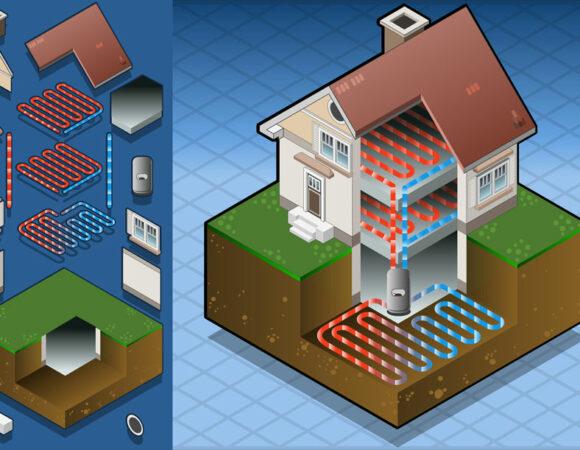Things To Know About Geothermal Heating Services
Geothermal heating services utilize the Earth’s natural heat to warm buildings, offering an eco-friendly alternative to traditional heating systems. Gary’s Heating Service, Inc. provides geothermal heating in Portland, MI, Ingham County, DeWitt, MI, Eaton County, Lansing and surrounding areas.
These are some key aspects to consider:
- Renewable Energy Source: Geothermal heating harnesses the Earth’s constant temperature below the surface, making it a sustainable and renewable energy source. Unlike fossil fuels, which are finite and contribute to pollution, geothermal energy is inexhaustible and emits minimal greenhouse gases.
- Efficiency: Geothermal systems are highly efficient, often providing up to four units of energy for every one unit of electrical energy consumed. This efficiency can result in significant cost savings on energy bills over time.
- Installation Process: Installing a geothermal heating system typically involves burying a series of pipes, called a loop, underground. These pipes circulate a water-based solution that absorbs heat from the ground and transfers it to the building. While installation costs can be higher than traditional systems, the long-term savings and environmental benefits often outweigh the initial investment.
- Longevity: Geothermal systems are known for their durability and longevity. The underground components can last for decades with minimal maintenance, and the heat pump units typically have a lifespan of 20 to 25 years or more.
- Space Requirements: Geothermal systems require adequate space for the installation of the ground loop, which can be either horizontal trenches or vertical boreholes. The specific requirements will depend on factors such as soil conditions, available land, and local regulations.
- Zoned Heating and Cooling: Geothermal systems can be designed to provide zoned heating and cooling, allowing for customizable temperature control in different areas of a building. This can improve comfort and energy efficiency by only heating or cooling the spaces that are in use.
- Environmental Impact: Geothermal heating services have minimal environmental impact compared to traditional heating systems. They produce no on-site emissions and reduce dependence on fossil fuels, helping to mitigate climate change and air pollution.
- Financial Incentives: Depending on location, there may be financial incentives available for installing geothermal heating systems, such as tax credits, rebates, or low-interest financing programs. These incentives can help offset the upfront costs and improve the return on investment.
By considering these factors, individuals and businesses can make informed decisions about incorporating geothermal heating services into their properties, benefiting both their bottom line and the environment. If you need assistance, we’re just a phone call away.


